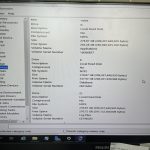Evaluating QuickBooks Desktop for Sole Proprietors: Is It Still Worth It?
For sole proprietors and freelancers, the choice of accounting software is crucial, especially when managing finances without the hassle of inventory tracking or invoicing. For years, I relied on QuickBooks Desktop to handle my basic bookkeeping needs, based on recommendations suggesting it was the best fit for my situation. Yet, as time passed, I found myself increasingly pressured by Intuit to transition to the online version—a prospect I was keen to avoid.
Recently, I’ve grown more apprehensive as I witnessed our annual Desktop subscription fee skyrocketing. Last year, it was a manageable $600, but, much to my surprise and dismay, I was billed a staggering $999 this year for the same service.
An unsettling conversation with a customer service representative compounded my concerns. According to them, if I were to cancel my QuickBooks Desktop subscription, I risk permanently losing all my financial data without any hope of retrieval.
In my quest for clarity, I discovered discussions that suggest some users can continue using QuickBooks Desktop even after their subscription ends, albeit with limited functionalities such as disabled online banking. This makes me wonder: Is this option available for all versions, or is it a relic of older software editions?
For sole proprietors like me, who rely heavily on streamlined bookkeeping solutions without needing extensive features, this information is vital. So, before making any decisions, it’s crucial to weigh the costs, explore potential impacts on data access, and consider whether sticking with a legacy offline system might still meet your needs effectively.
Your feedback and experiences with QuickBooks Desktop versus its online counterpart could help me and others make informed decisions. Have you encountered similar challenges, and how did you resolve them?










2 Comments
Thank you for sharing your experiences with QuickBooks Desktop! Your situation resonates with many sole proprietors who are grappling with the rising costs and pressures to switch to QuickBooks Online. The concerns you’ve raised about data access and pricing are quite prevalent, and it’s essential to navigate this landscape carefully.
One aspect worth considering is the potential for transition to alternative accounting solutions that may offer a more cost-effective and flexible approach. There are several applications tailored for freelancers and sole proprietors, like FreshBooks or Wave, which provide user-friendly interfaces and excellent support without the subscription shock. These platforms also often include features tailored for service-based businesses, which might further simplify your financial management.
As for your question about continuing to use QuickBooks Desktop after the subscription ends, it appears some older versions do allow limited functionality, but this can vary significantly. Users have reported mixed experiences based on version and licensing agreements. Always worth double-checking with Intuit or user forums for the most current perspectives on this, as policies can change.
Lastly, have you considered exporting your financial data? QuickBooks typically allows users to export reports, which can serve as a safety net, should you decide to explore other options. Always good to have your data backed up!
I appreciate your call for shared experiences, and I’m confident that many in this community will provide valuable insights. You’re not alone in this transition—a thoughtful evaluation of not just costs but also features and support should lead to a solution tailored to your unique needs.
Great insights on the evolving landscape of QuickBooks Desktop! As a fellow sole proprietor, I’ve also faced similar dilemmas. One key consideration is the importance of data security and access—offline desktop versions, when maintained properly, offer the advantage of complete data control, especially if cloud-based options introduce ongoing costs or concerns about data privacy.
However, the risk of losing access after canceling a subscription, as mentioned, is significant; I’d recommend regularly backing up your files externally or migrating to a more permanent local storage solution. Additionally, exploring alternative accounting software tailored for small, solo businesses—such as Wave or Zoho Books—might provide cost-effective, one-time purchase options or free versions that meet your needs without the cloud dependency.
Ultimately, balancing cost, data accessibility, and software reliability is key. Staying informed about the latest updates from Intuit and community experiences can help you make a strategic choice tailored to your business’s growth and security needs. Thanks for sparking this important discussion!